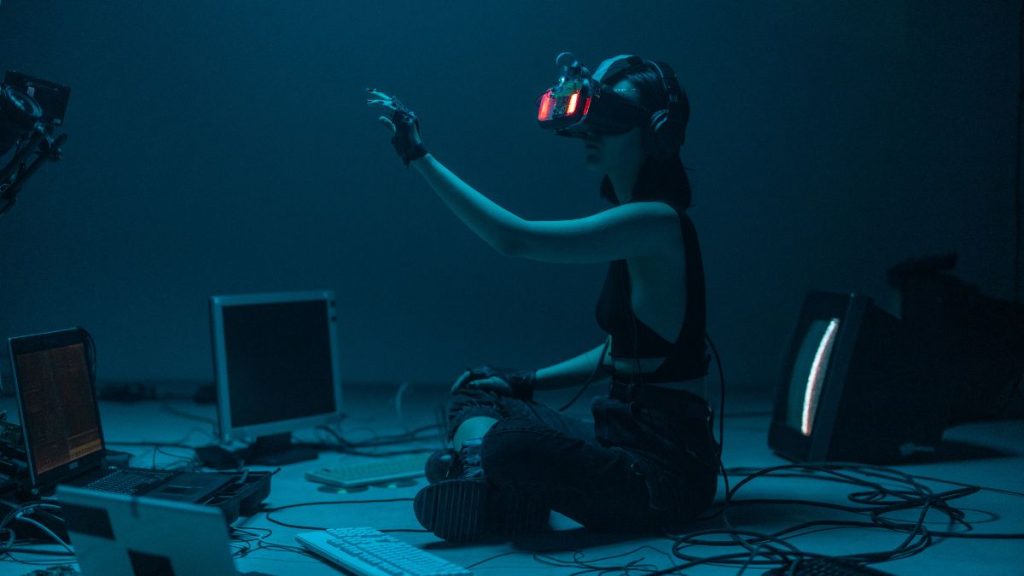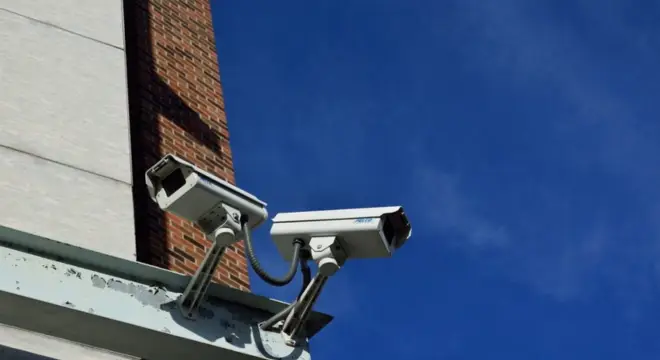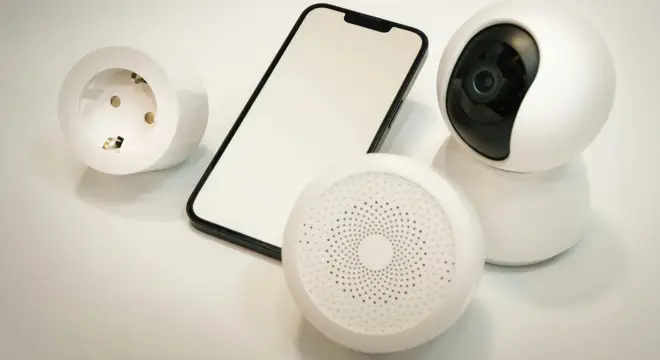How AI Companies Could Impact Your Home Security and Privacy: What You Need to Know
In today’s hyper-connected world, the rise of artificial intelligence is reshaping every corner of life—including the way we protect our homes. While AI has made security systems smarter and more responsive, it has also quietly opened doors to serious privacy concerns.
Behind the promises of innovation, a deeper issue is brewing: the growing power of secretive AI companies that control how personal information is collected, used, and shared. For homeowners, this isn’t just a distant tech problem—it’s a direct threat to the privacy and safety of their own living spaces.
Understanding these emerging risks is essential, especially when the security of our homes increasingly depends on technologies we cannot fully see or control.
The Growing Control of AI Over Personal Spaces
Over the past few years, artificial intelligence has made its way from research labs to living rooms. Smart locks, AI-driven cameras, video doorbells, and even automated home monitoring systems are now common features in modern homes.
While these devices offer unparalleled convenience and safety, they also collect a staggering amount of personal information—tracking everything from your daily habits to the times you leave and return home.
The real concern lies in who controls this data. Many AI companies operate in the shadows, offering minimal transparency about how they store, analyze, and share user information. Homeowners often install smart security systems believing they are boosting safety, without realizing they may be handing over sensitive details to corporations whose real intentions are not always clear.
Recently, a detailed report by researchers, covered by ZDNet, raised alarms about how a few secretive AI companies could influence free society. They warned that these companies, operating without adequate public oversight, could exploit sensitive personal information—including data collected from private homes.
Such findings underline the urgent need for homeowners to rethink their approach to security and privacy before trusting just any brand with their personal spaces.
How AI Threatens Home Privacy and Security?

When a homeowner installs a smart camera or a connected alarm system, the expectation is simple: more protection. However, without strong privacy protections, these very systems can become tools of surveillance against the owner.
AI-enabled devices can track behavioral patterns, recognize faces, and even listen in on private conversations. If the companies behind these devices choose—or are forced—to share this data, the consequences can be severe.
Imagine a situation where your daily routine is mapped and sold to third-party advertisers or worse, malicious entities. Without clear regulations or transparent policies, there is very little stopping companies from using home security data for purposes that extend far beyond safety.
Moreover, if one of these companies suffers a cyberattack, the breach could expose not just your personal information but intimate details about your home and family life.
The growing dependence on AI in home security systems means that privacy breaches are no longer just about stolen passwords—they’re about compromised lifestyles.
Practical Improvements Homeowners Can Make
While the risks posed by AI in home security are real, homeowners can take several practical steps to regain control and ensure their personal data remains secure. Here’s what you can do to protect your home and privacy in this increasingly AI-driven world:
1. Prioritize Local Storage Over Cloud-Based Solutions:
Many smart home security systems store video footage and other sensitive data on the cloud. This may seem convenient, but it also means your data is stored on servers outside of your control. Prefer security devices that store data locally, either on an internal drive or on a private server within your home. This minimizes the risk of data being accessed by unauthorized parties.
2. Choose Transparent, Privacy-Focused Brands:
Before investing in any home security system, research the company’s privacy policies. Opt for brands that are transparent about how your data is collected, stored, and shared. Look for systems that offer end-to-end encryption for video streams and private information. The more clear and direct the company is about its data handling, the safer you can feel.
3. Regularly Update and Maintain Devices:
Just like any piece of technology, smart security systems can have vulnerabilities. Regularly check for software updates and install them promptly. These updates often contain important security patches that prevent hackers from exploiting flaws in your system. Additionally, make sure your devices are well-maintained and remove outdated or unused devices that may pose a risk.
4. Strengthen Your Home Network Security:
Home security systems rely heavily on Wi-Fi and internet connections. If your network isn’t secure, attackers could easily gain access to your devices. Use strong passwords, enable two-factor authentication, and consider setting up a separate network for your IoT devices. This adds an extra layer of protection in case your main network is compromised.
5. Be Mindful of Privacy Settings:
Many smart devices, like voice assistants and cameras, have settings that determine what information is shared or recorded. Take the time to review and adjust the privacy settings of your devices regularly. Limit data collection to only what’s necessary, and opt out of features that track your behavior or share your data with third parties.
6. Support Stronger Privacy Laws and Regulations:
As a homeowner, your voice matters. Advocate for stricter privacy laws that protect consumers from the monopolistic practices of large AI companies. Encourage lawmakers to pass regulations that ensure companies are held accountable for how they use and share personal data. Supporting these laws helps safeguard not just your home, but the privacy of society at large.
Do you know about Chalamet’s Secret House Purchase Shows? If not, then you can go here: Inside Timothée Chalamet’s Quiet Home Purchase: A Lesson in Modern Privacy
Why Staying Aware is Your Best Defense?

Staying informed is your first line of defense in the battle against privacy threats posed by AI and home security systems. In a world where technology is rapidly evolving, it’s essential for homeowners to be vigilant and proactive. While smart security devices can certainly enhance safety, they come with responsibilities—mainly, ensuring that your data doesn’t fall into the wrong hands.
Knowledge empowers you to make better decisions when choosing security systems and other connected devices. By understanding the risks and actively implementing strategies to protect your privacy, you can confidently use technology to keep your home secure without compromising your personal information.
Remaining aware also means not letting complacency set in. As AI technology becomes more integrated into home security, it’s critical to continuously assess your privacy practices. Regularly check for updates on the latest security breaches and trends in AI surveillance, and adjust your approach accordingly. The landscape is constantly changing, and what may seem safe today might pose risks tomorrow.
Ultimately, being aware and educated about how AI affects home security puts you in the driver’s seat. Protecting your home isn’t just about installing the latest security system—it’s about being an active participant in ensuring your personal privacy remains intact.
Conclusion
In conclusion, while AI technology offers immense benefits in terms of home security, it also comes with significant privacy risks. The ability to track our movements, behaviors, and even conversations has far-reaching implications for personal freedom and privacy. As AI companies continue to grow, their influence over our private spaces must be closely monitored and regulated.
Homeowners must not passively accept whatever technology is presented to them. It is essential to be vigilant about the brands you trust, the data you share, and the way you set up your home security systems. By taking the necessary steps to secure your devices, safeguard your data, and stay aware of the broader privacy landscape, you can protect both your home and your personal freedom.
Remember, true home security begins with knowledge and control. Don’t let your privacy be compromised—stay informed, stay secure, and keep your home safe from the growing threats of AI surveillance.
Your home is your sanctuary, and protecting it should always be a top priority. Don’t let AI-driven systems compromise your privacy. Stay informed, make smarter decisions, and secure your home the right way. If you want to learn more about improving your home security and ensuring your privacy, visit our website for expert advice and the latest updates on home protection technologies.
Disclaimer: The information provided in this article is for informational purposes only. While we strive to offer the most accurate and up-to-date advice, we do not guarantee the effectiveness or suitability of any security system or technology.
Always consult with a professional before making decisions regarding your home security or privacy. Our recommendations are based on current trends and best practices in the industry, and may not reflect all potential risks or solutions.


